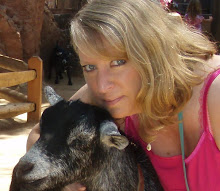
The Burnham Beeches, Buckinghamshire
My second self-regression didn’t take place until February 16th, 1987:
He is sitting in a high-backed, light-colored chair, turns to me, says, "What is it that you want?" Appearance similar to drawing, slightly more fragile looking. Gets up from the chair, walks across the room in a measured, dignified manner, takes something from a wooden box on a table, stands before a white marble fireplace and talks to me all the while in a measured, dignified way – snobbish, smug. Looks glancingly above the mantle at a picture above. Fireplace has carving on either side, room is light, and outside it is perhaps ten or so in the morning. Windows are tall, and to the right of where I'm standing, outside there are views of rolling green hills. Door is on the left side of the room, room is approximately twenty-five feet high, large room. Piano is in the left-hand corner behind me. It appears more brownish now than black, with flowers. As he stands looking above the mantle, his coat is silken (brocade?) and there are white stockings, and his hair is light brown and long, straight, but curled slightly at the ends. Sleeves are decked in lace, as well as having gloves, maybe? I was mad at him a bit, but patient, and patience about to run out. Also I had the desire for him to play the piano. Ceiling painted, I think, with a big picture. (Steve Perry of Journey with cheekbones and blue eyes.)
Riding in a stand of thick, small trees – cottonwood or vine maple or something. Path overgrown, horse galloping out of control, hands before my face, shielding from branches whipping past me, shouting, "Wait! Wait!" Wearing a long dress, riding a Palomino or light brown or white horse. Ribbons in my hair. He falls back suddenly beside me (after much panic), horses trot, and I yell at him. He's smiling. Day is overcast but warm.
In a white barn – this is a row of long, low-ceilinged stables open to the air. Dirt and straw piled in the walkway. People are distant. He's unlacing my corset and I'm resisting a bit. His face seems more rounded with hollow cheeks, olive skin, his hair dark brown but with the same loose, straight quality, and it smells of memories of him.
In the dark, possibly still the barn – maybe same incident, maybe different. I feel an incredible agony and melancholy as in love, and love for him, as if we weren't supposed to be making love, as if I'd been without him for a while, months or years, and he was cheating on his wife or something for me, and this one moment of total love for him as all my life was accompanied by the agony of having been without him and knowing I could probably never have him again. He wore a white, loose shirt, unbuttoned, his body small and of small frame and delicate. He was of strong temperament, sometimes arrogant and mercenary, sometimes decent and civil, sometimes passionate but demanding. His touch was soft. I felt what it must be like to love someone totally whom you already love of mind anyway, but haven't been able to have.
Verification of my memories:
In the first months of 1992, trying to find an Irish musician who matched my memories, I discovered Thomas Carter in a book at the Public Library, "Anglo-Irish music, 1780-1830" by Ita Margaret Hogan. This musician matched what I knew at that point:
CARTER, Thomas (b. Dublin 1769, d. London 1800) Chorister of Cloyne Cathedral. Patronized by the Earl of Inchiquin. Travelled in Italy, eventually reaching Naples where he was under the protection of Sir William and Lady Hamilton. In 1788 he went to India, and became musical director of the theatre in Calcutta, but the climate affected his health and he was forced to return to England. In 1793 he married a daughter of the Rev. Mr. Wells of Cookham, Berkshire, and had two children. He was a member of several musical societies in London, and was 'justly regarded as the choicest feather of their wing.' He wrote some songs and music for the theatre which achieved considerable success, but died prematurely of a disease contracted in India.
Once Thomas Carter's name was found, eventually I was able to verify several things from the above recorded memory:
That Thomas and his wife Mary spent their courting years in Cookham, an area (the Burnham Beeches nearby) famous for its beech forests (verified 1992).
That Thomas left for India (verified 1992) in the spring of 1786 and did not return until July 9th of 1789 (verified 05/05/2002). Having been aboard the Lord Camden for over a year and half, naturally he would've been quite suntanned when he arrived back in the Cookham neighborhood.
That Thomas was small (verified 05/05/2002), as described by William Hickey in his memoirs (edited by Mark Argent): "Upon going in the tavern, I saw in the large hall, amongst many strangers, an uncommonly vulgar-looking little body, whose face I thought I had seen before." (By vulgar, Hickey means common, like a farm laborer instead of an aristocratic gentleman.) Also, Hickey refers to him as "little fellow," "my little Irish guest," and "Little Carter." Edmund Burke also calls him "Little Carter" in a letter to a friend (verified 12/06/2001).

A Stag at Bay, Scene Near Taplow, by Thomas Rowlandson c1795-1801
If you're looking for help in remembering your past lives, please see my page demonstrating the steps for self-regression and hypnotism for past-life recall.


No comments:
Post a Comment